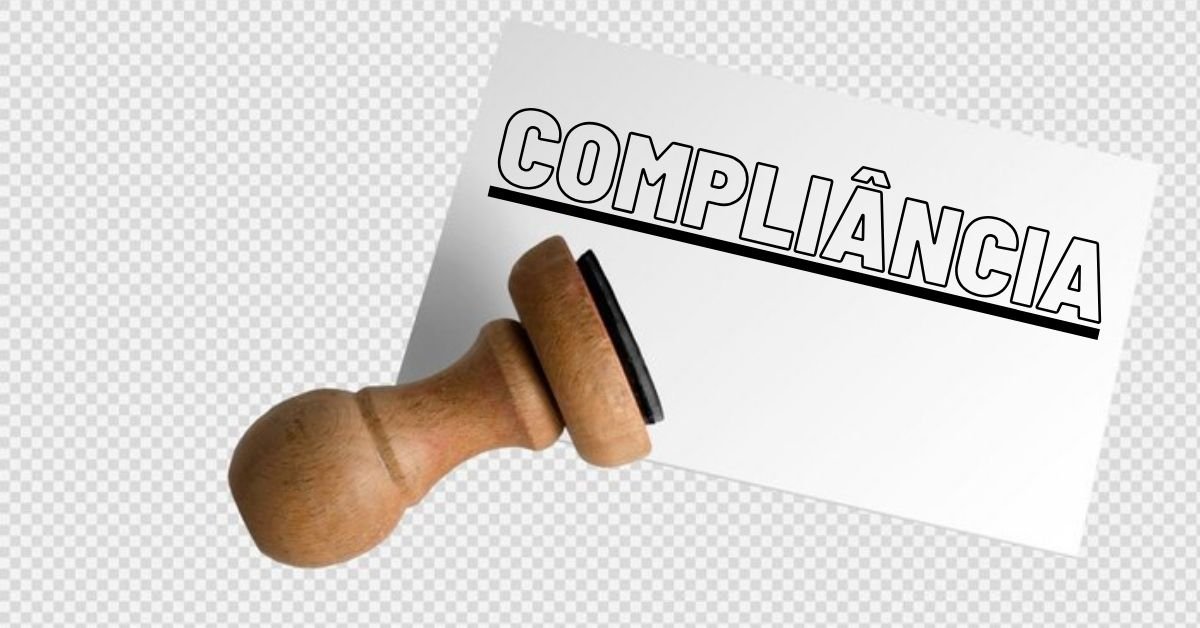Law
Decoding Compliância: Navigating Laws, Standards, and Ethics

In today’s complex business landscape, compliância stands as a crucial pillar supporting organizational integrity and sustainability. It entails adhering to laws, regulations, standards, and ethical practices relevant to a particular industry or jurisdiction. Compliance ensures that businesses operate within legal boundaries while upholding ethical principles.
Understanding the Concept
Compliance refers to the process of abiding by laws, regulations, and standards set forth by governing bodies. It encompasses various aspects, including financial reporting, data protection, environmental regulations, and employee welfare.
Importance in Business Operations
Compliância is paramount for businesses to maintain trust among stakeholders, avoid legal repercussions, and foster a positive reputation. Non-compliance can result in hefty fines, legal battles, and damage to brand image, leading to severe financial and reputational losses.
Laws Governing Compliance
Numerous laws and regulations govern different aspects of business operations, varying across industries and jurisdictions.
Overview of Major Regulatory Bodies
Regulatory bodies such as the Securities and Exchange Commission (SEC), Environmental Protection Agency (EPA), and Food and Drug Administration (FDA) play crucial roles in setting and enforcing compliance standards.
Impact on Different Industries
Different industries face unique regulatory challenges. For instance, the healthcare sector must comply with strict patient privacy laws under the Health Insurance Portability and Accountability Act (HIPAA), while financial institutions must adhere to stringent anti-money laundering (AML) regulations.
Standards for Compliance
Compliance standards serve as guidelines for organizations to ensure operational efficiency and ethical conduct.
International Standards vs. Industry-Specific Standards
International standards like ISO 9001 (Quality Management) and ISO 14001 (Environmental Management) provide a framework for achieving compliance across borders. Industry-specific standards, such as PCI DSS (Payment Card Industry Data Security Standard) for the financial sector, offer tailored guidelines to address sector-specific risks.
Implementing and Maintaining Compliance Standards
Implementing compliance standards requires a comprehensive approach involving risk assessment, policy development, training programs, and regular audits. Continuous monitoring and adaptation are essential to keep pace with evolving regulatory requirements.
Ethics in Compliance
Ethical considerations form the cornerstone of effective compliance practices, guiding organizations to uphold integrity and social responsibility.
Ethical Considerations in Regulatory Compliance
Ethical compliance involves more than just following rules; it entails making morally sound decisions that benefit stakeholders and society as a whole. Organizations must prioritize honesty, transparency, and accountability in their compliance efforts.
Role of Ethics in Business Practices
Ethical business practices foster trust and loyalty among customers, employees, and investors. By integrating ethical principles into their operations, companies can enhance their reputation, mitigate risks, and achieve long-term success.
Navigating the intricate landscape of compliance poses several challenges for organizations, ranging from regulatory complexity to resource constraints.
Complex Regulatory Environment
The rapid pace of regulatory changes, coupled with overlapping jurisdictions and conflicting requirements, complicates Compliância efforts. Organizations must invest significant time and resources to stay abreast of evolving regulations and ensure compliance across multiple domains.
Compliance Fatigue and Overload
The sheer volume of regulatory requirements and documentation can overwhelm organizations, leading to compliance fatigue. Managing compliance across various departments and geographical locations adds to the complexity, making it challenging to maintain consistency and efficiency.
Strategies for Effective Compliance Management
To overcome compliance challenges and achieve sustainable compliance, organizations can adopt strategic approaches and leverage innovative solutions.
Leveraging Technology
Technology plays a vital role in streamlining Compliância processes, automating repetitive tasks, and enhancing data security. Solutions such as compliance management software, artificial intelligence, and blockchain offer efficient ways to monitor, analyze, and report compliance activities.
Employee Training and Awareness
Empowering employees with comprehensive training programs and awareness campaigns is essential for cultivating a culture of Compliância. By educating staff about regulatory requirements, ethical standards, and best practices, organizations can foster a proactive approach to compliance and minimize the risk of non-compliance.
The Future of Compliance
As technology advances and global challenges evolve, the landscape of compliance is poised for significant transformation.
Emerging Trends and Innovations
Trends such as remote work, digitalization, and sustainability are reshaping compliance priorities and strategies. Innovations in regulatory technology (RegTech) and compliance analytics are revolutionizing how organizations manage Compliância, offering real-time insights and predictive capabilities.
Anticipated Changes in Regulatory Landscape
Regulatory bodies are likely to introduce new regulations and update existing ones to address emerging risks and societal concerns. Increased focus on data privacy, cybersecurity, and environmental sustainability will drive organizations to adapt and innovate in their compliance practices.
Conclusion
In today’s interconnected world, compliance is not merely a legal obligation but a strategic imperative for businesses seeking to thrive in a dynamic and competitive environment. By decoding the complexities of Compliância and embracing ethical principles, organizations can navigate the regulatory landscape with confidence, ensuring long-term success and sustainability.
Is this article helpful? Keep reading our blog for more.
FAQs
- What are the consequences of non-compliance?
Non-compliance can result in legal penalties, fines, reputational damage, and loss of trust among stakeholders, leading to significant financial and operational impacts. - How can organizations stay updated on changing regulations?
Organizations can stay abreast of changing regulations by establishing robust monitoring mechanisms, engaging with industry associations, and leveraging regulatory intelligence platforms. - What role does leadership play in promoting compliance culture?
Leadership plays a crucial role in setting the tone for compliance culture, fostering transparency, accountability, and ethical conduct throughout the organization. - Why is ethical compliance important for businesses?
Ethical compliance not only ensures legal adherence but also builds trust, enhances reputation, and creates sustainable value for stakeholders. - How can small businesses effectively manage compliance with limited resources?
Small businesses can leverage technology, outsource non-core compliance functions, and prioritize risk-based compliance initiatives to effectively manage compliance with limited resources.
Law
The Role of Product Liability Law in Protecting Consumers

Ever bought a product that didn’t work as advertised? Ever dealt with a faulty gadget that hurt you or caused damage?
If so, you’re not alone. Every year, thousands of people suffer injuries due to defective products. This is where product liability law steps in to protect you.
In this blog post, we’ll explore the role of product liability law in safeguarding consumers.
So, read on!
Ensuring Product Safety
Product liability law is a legal framework that holds manufacturers, distributors, and retailers accountable for the safety of their products. It ensures that consumers are protected from defective and dangerous products.
Through this law, companies are required to follow strict safety standards. They can do this before selling their products.
They must test their products thoroughly. That way, they can ensure they are safe for use or consumption. The manufacturer can be held liable for any harm caused by the product. This happens if a product fails to meet these standards.
Holding Manufacturers Accountable
Product liability law holds manufacturers accountable for any harm caused by their products. This is regardless of whether they were aware of the defect or not. This is known as strict liability.
Strict liability means that manufacturers are responsible for defects in their products. This is even if they took all necessary precautions to prevent them. This holds as long as the product was used as intended.
This puts pressure on manufacturers to prioritize safety. It also ensures that consumers are protected from faulty products. Even if you ask a product defect lawyer, they will tell you that strict liability is a powerful tool in holding manufacturers accountable for their products.
Providing Legal Recourse for Consumers
Product liability law also allows consumers to seek legal recourse if they have been harmed by a defective product. This means that individuals can file a lawsuit against the:
- manufacturer of the product
- distributor of the product
- retailer of the product
That way, they can seek compensation for any personal injuries or damages caused. In addition, this law also enables class-action lawsuits, where a group of consumers who have been harmed by the same product can join together to sue the responsible parties. This allows individuals with smaller claims to come together and hold larger companies accountable.
This is because any product injury claim can be expensive and time-consuming. But, by joining a class-action lawsuit, individuals can share the costs. They can also increase their chances of receiving compensation.
Whether you are hiring Lexington defective product attorneys or any other type of lawyer, they can help you navigate the legal process and fight for your rights as a consumer.
Promoting Transparency and Accountability
Product liability law promotes transparency and accountability within the manufacturing industry. Companies are required to provide detailed information about their products. This includes potential risks and hazards, to consumers. This allows individuals to make informed decisions when purchasing products.
Furthermore, manufacturers are also required to track any reported defects or injuries caused by their products. This helps identify patterns and potential safety issues that need to be addressed.
Discover the Role of Product Liability Law
Product liability law plays a crucial role in protecting consumers from the dangers of defective products. It holds manufacturers accountable for their products and provides legal recourse for those who have been harmed.
By understanding the importance of such laws, consumers can make informed decisions when purchasing products and ensure their safety. So next time you encounter a faulty product, remember that product liability law is there to protect you.
To read more, visit our blog page. We do have more!
Law
The Different Types of Living Options for 68 Year Olds in Retirement

As you enter your golden years, it’s essential to find a living situation that suits your lifestyle and needs. Whether you crave independence, community, or medical support, there are many options to consider.
From staying in your own home to moving to a retirement village or assisted living facility, each choice offers distinct advantages. Read on to discover the different types of living options for 68 year olds in retirement and find the perfect fit for you.
Independent Living Communities
Independent Living Communities are a great choice for 68 year olds who want to live on their own. These communities offer a home-like setting where seniors can enjoy their freedom.
They can come and go as they please and take part in fun activities. The goal is to give seniors the chance to live an easy life while still being part of a community. These places are perfect for people who value senior living independence and want to meet new friends.
Assisted Living Facilities
Assisted Living Facilities are a good option for 68 year olds who need some help with daily tasks. These places provide assisted living amenities like meals, housekeeping, and activities. Seniors can enjoy their own space and get help when they need it.
There is staff available around the clock to assist with things like bathing, dressing, and taking medicine. This type of living arrangement ensures that seniors get the care they need while still having a sense of independence.
Nursing Homes
Nursing Homes are a place for 68 year olds who need more help every day. Many people here need more care than those in other living options.
They get help with everything like eating, moving around, and taking medicine. There are always nurses and other helpers ready to give care. It is a safe place for seniors who need a lot of support. For more living choices, check out senior living options in Biloxi.
Aging in Place
Aging in Place is when 68 year olds decide to stay in their own homes as they get older. This choice lets them be in a familiar place where they feel comfortable.
They can still be close to family and friends. Sometimes, they might need a little help, like someone to clean the house or bring groceries. Aging in Place can be a good way for 68 year olds to keep their independence while getting the support they need. It lets them enjoy their golden years in the place they love most.
Multi-Generational Housing
Multi-Generational Housing is a choice where 68 year olds live with their family members. This type of living means grandparents, parents, and kids all live in one home.
It makes it easy to spend time together and help each other out. For 68 year olds, it means they are not alone and have family close by. They can share stories, meals, and special moments. It can save money too, since everyone shares the costs. This way of living helps build strong family bonds and support.
Learn More About 68 Year Olds
In conclusion, choosing the right living situation is super important for 68 year olds. Whether it’s staying at home, moving to a community, or living with family, each choice has its own perks.
It’s all about what feels best and gives the right mix of independence and help. Enjoying the golden years is easier when living in a place that feels just right.
Visit our blog for more!
Law
The Role of Self-Defense in Assault Case

Table of Contents
- What Is Self-Defense?
- Legal Criteria for Self-Defense
- Common Misconceptions
- Self-Defense Laws Across States
- Importance of Legal Representation
- Self-Defense and Jury Perception
- Concluding Thoughts
What Is Self-Defense?
Self-defense is the act of protecting oneself from immediate harm using reasonable force. It is a legal defense used to justify actions that may otherwise be considered illegal. Understanding the definition and application of self-defense is particularly crucial for individuals facing assault charges in Nebraska. The concept aims to balance the necessity of protecting oneself with the legal standards that prevent excessive or unjustified force. Frequently misinterpreted, the concept of self-defense permits people to steer clear of legal responsibility by proving their actions were justified and appropriate in relation to the danger.
Legal Criteria for Self-Defense
Each jurisdiction has specific criteria for what constitutes self-defense. Still, three main elements are generally considered: an imminent threat of harm, a proportional response, and a genuine belief in the necessity of force. The first criterion, an imminent threat of harm, means that the danger must be immediate and unavoidable, not a distant or speculative threat. The second element, a proportional response, requires that the force used in defense correspond to the threat level faced. Overreacting with excessive force can invalidate a self-defense claim. Lastly, the defender must genuinely believe the force used was necessary to prevent harm. This belief doesn’t have to be correct, but it must be reasonable. For more detailed information, the American Bar Association provides comprehensive resources on how the courts assess self-defense claims.
Common Misconceptions
Misconceptions about self-defense can lead to poor decision-making and legal complications. A prevalent myth is that any force used in self-defense is automatically justified. However, the law requires that the force be reasonable and proportionate to the threat. Another common misconception is that one must exhaust all options to retreat before using force. While this is true in some jurisdictions that impose a duty to retreat, others, like those with stand your ground laws, do not require retreat. Such misunderstandings can result in individuals either overreacting or failing to defend themselves adequately.
Self-Defense Laws Across States
Self-defense laws vary significantly across states, affecting how individuals can legally defend themselves. Some states, known for their stand your ground laws, allow individuals to use force without the duty to retreat when faced with an immediate threat. Conversely, other states may require a duty to retreat, meaning one must attempt to avoid the confrontation if safely possible before resorting to force. The differences in these laws can profoundly affect the outcome of self-defense cases. For example, in Stand Your Ground states, the use of force may be more readily justified, whereas in duty-to-retreat states, failure to retreat can undermine a self-defense claim.
Importance of Legal Representation
Legal representation in Nebraska is crucial when arguing for self-defense in an assault case. A skilled attorney is essential in navigating the complexities of the legal system, gathering necessary evidence, and crafting a compelling defense strategy. Understanding legal precedents, local laws, and the intricacies of self-defense claims can be overwhelming for most individuals. An experienced lawyer can effectively communicate your situation, presenting evidence supporting your actions’ necessity and proportionality. This legal expertise can significantly affect the case’s outcome, often determining whether the self-defense claim is accepted or rejected.
Self-Defense and Jury Perception
The perception of self-defense can vary widely among jury members, influenced by their personal experiences, biases, and understanding of the law. It’s about what happened and how the situation is presented and perceived. A well-argued case demonstrating the proportionality and necessity of the force used can sway the jury in favor of the defendant. Conversely, if the jury perceives the force as excessive or the threat as non-imminent, the self-defense claim might not be successful. This underscores the importance of effective legal representation and a clear, persuasive presentation of the facts.
Concluding Thoughts
Understanding the significance of self-defense in assault cases is essential for ensuring a fair trial. Due to the intricacies of self-defense laws, it is necessary to consult with a legal expert to safeguard your rights. Comprehensive readiness and a firm grasp of self-defense principles can significantly impact your situation. With adequate understanding and legal counsel, navigating the complexities of self-defense laws is easier, increasing the likelihood of mounting a successful defense.

 Business3 months ago
Business3 months agoTex9.Net Crypto: Fast, Secure International Money Transfers with Competitive Rates

 Entertainment2 months ago
Entertainment2 months agoSandra Orlow: Exploring the Life and Legacy of a Cultural Icon

 General1 week ago
General1 week agoBaby Alien Fan Bus: Watch Parts 2 & 3 on Twitter, Reddit!

 General1 week ago
General1 week agoDiana Nyad & Bart Springtime: A Swim to Success

 Business3 months ago
Business3 months agoSnapchat Planets: Exploring Your Streak Universe

 General1 month ago
General1 month agoDeeper Dive into myfavouriteplaces. org:// blog

 Business3 months ago
Business3 months agoFintechZoom Apple Stock: Real-Time Insights and Expert Analysis

 Entertainment3 months ago
Entertainment3 months agoUnlock Your Fantasy: Dive into Coomer Party Free OnlyFans Leaks!
















